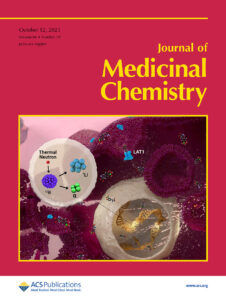
The team at TAE Life Sciences is thrilled to unveil groundbreaking research that could transform the landscape of cancer care. A recent study, focusing on TAE Life Sciences’ Boronotyrosine (BTS) drug, a novel borylated amino acid analogue, has demonstrated exceptional potential to elevate the effectiveness of BNCT in combating cancer.
Published in the esteemed Journal of Medicinal Chemistry, this study marks a significant leap forward in the pursuit of refining BNCT—a cutting-edge therapy combining boronated drugs with neutron sources to precisely target and destroy cancer cells while sparing healthy tissue.
The research reveals BTS’s remarkable ability to deliver boron—a crucial component in BNCT—directly to cancer cells expressing LAT1 markers. In both lab-grown and living models, BTS showcased unparalleled efficiency compared to the currently approved BNCT drug, Boronophenylalanine (BPA).
What sets BTS apart is its superior cellular uptake, exhibiting a 2 to 4 times higher intake compared to BPA in vitro. Importantly, the study indicates that cancer cells retain nearly 60% of ingested boron after 18 hours with BTS, while BPA retains less than 20%. These findings translate to prolonged and enhanced boron delivery within cancer cells in live experiments, which is crucial for BNCT efficacy after dosing the patient.
Another noteworthy aspect is the striking improvement in the tumor-to-blood ratio with BTS, demonstrating as high as 28 to 1 compared to 6 to 1 for BPA. This enhancement is pivotal as it ensures precise targeting of tumors while minimizing exposure to healthy tissues, a key goal in cancer therapy.
This breakthrough firmly establishes TAE Life Sciences as a frontrunner in advancing cancer treatment within radiation oncology. The promising outcomes of this drug study paves the way for further research and clinical applications, reflecting the company's unwavering commitment to reshaping cancer care.
For more detailed information, you can access the study titled “Boronotyrosine, a Borylated Amino Acid Mimetic with Enhanced Solubility, Tumor Boron Delivery, and Retention for the Reemerging Boron Neutron Capture Therapy Field,” published in the Journal of Medicinal Chemistry, volume 66, issue 19, pages 13,347 – 13,858.


